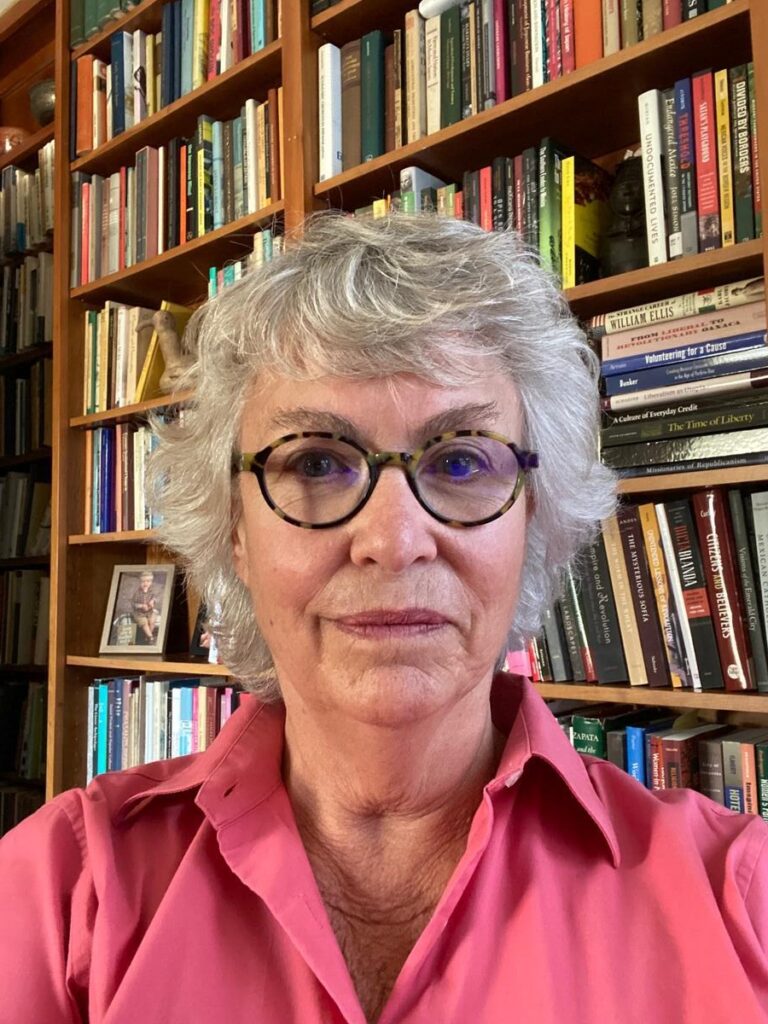Claudia Sheinbaum just became Mexico’s first female president. It’s not surprising, Berkeley historian says.
"I see this as, in some ways, a pretty natural outcome for a country that committed officially decades ago to increasing women’s presence in government," said UC Berkeley historian Margaret Chowning.

Luis Barron, Eyepix, NurPhoto/AP
June 4, 2024
Voters in Mexico over the weekend elected Claudia Sheinbaum as the country’s first female president, elevating a climate scientist with Berkeley ties to the country’s top political post.
In selecting Sheinbaum, voters supported a longtime ally of outgoing President Andrés Manuel López Obrador, a populist leader who worked to expand social programs during his six-year term. Sheinbaum has a wealth of experience, both as a politician who served as mayor of Mexico City until last year, and as an scientist who was part of the United Nations panel of climate scientists that received the 2007 Nobel Peace Prize.
Sheinbaum also has a Ph.D. in energy engineering, and in the 1990s she was a researcher at Berkeley Lab, where she studied energy use in Mexico’s transportation and building sectors. Her scientific background informs her approach to politics: Sheinbaum’s nickname is “La Doctora,” owing to her academic accomplishments, and she is said to bring a data-driven approach to her political strategy. In a 2023 interview with The Associated Press, Sheinbaum said, “I believe in science.”
While her election is a first, it’s far from surprising that a woman has finally risen to the country’s highest office, said Margaret Chowning, a UC Berkeley history professor who studies and writes about female politicians in Latin America.

“Women have historically been accepted as moral leaders nationally and political leaders at the local level,” Chowning said. “They led village rebellions in the colonial period and were leaders of the fight against secularism.”
Women were not allowed to vote in national elections until 1953. Since then, gender equity efforts in political office have become standard practice — and legally required. Lawmakers in 1996 recommended that three in 10 congressional candidates be women. They made it mandatory six years later. And in 2014, they raised the standard to 50% female representation.
Once all the votes are counted, Mexico is likely to have one of the largest contingents of congresswomen in the world and have women governing nearly half of the country’s 32 states.
“I see this as, in some ways, a pretty natural outcome for a country that committed officially decades ago to increasing women’s presence in government,” Chowning said, “and whose women have been heavily involved in politics well before they were actually enabled to vote or hold office.”
Chowning said that Sheinbaum’s history as a scientist may not have been the most important biographical factor in her landslide victory. Rather, she said, her recent tenure as the mayor of Mexico City, population 9 million, elevated her platform and image as a person who gets things done.
Much has also been said about Sheinbaum becoming Mexico’s first Jewish president, though Chowning said that, too, should not be such a surprise. Despite being one of the world’s largest Catholic countries, Mexican presidents throughout the 20th century have ranged from “anti-Catholic to blandly and not very actively Catholic,” she said.
Moreover, she said, Sheinbaum’s family fled the rise of European fascism at a time when Mexican President Lázaro Cárdenas del Río, who served from 1934 to 1940, was actively accepting refugees.
“Not being Catholic would not be a strange next step,” Chowning said of the new president-elect. “It is certainly an accomplishment, however, for a Jew to overcome anti-semitism and rise within the party ranks.”
Sheinbaum’s six-year term begins Oct. 1.
“As I have said on other occasions, I do not arrive alone,” Sheinbaum said shortly after her victory was confirmed. “We all arrived, with our heroines who gave us our homeland, with our mothers, our daughters and our granddaughters.”